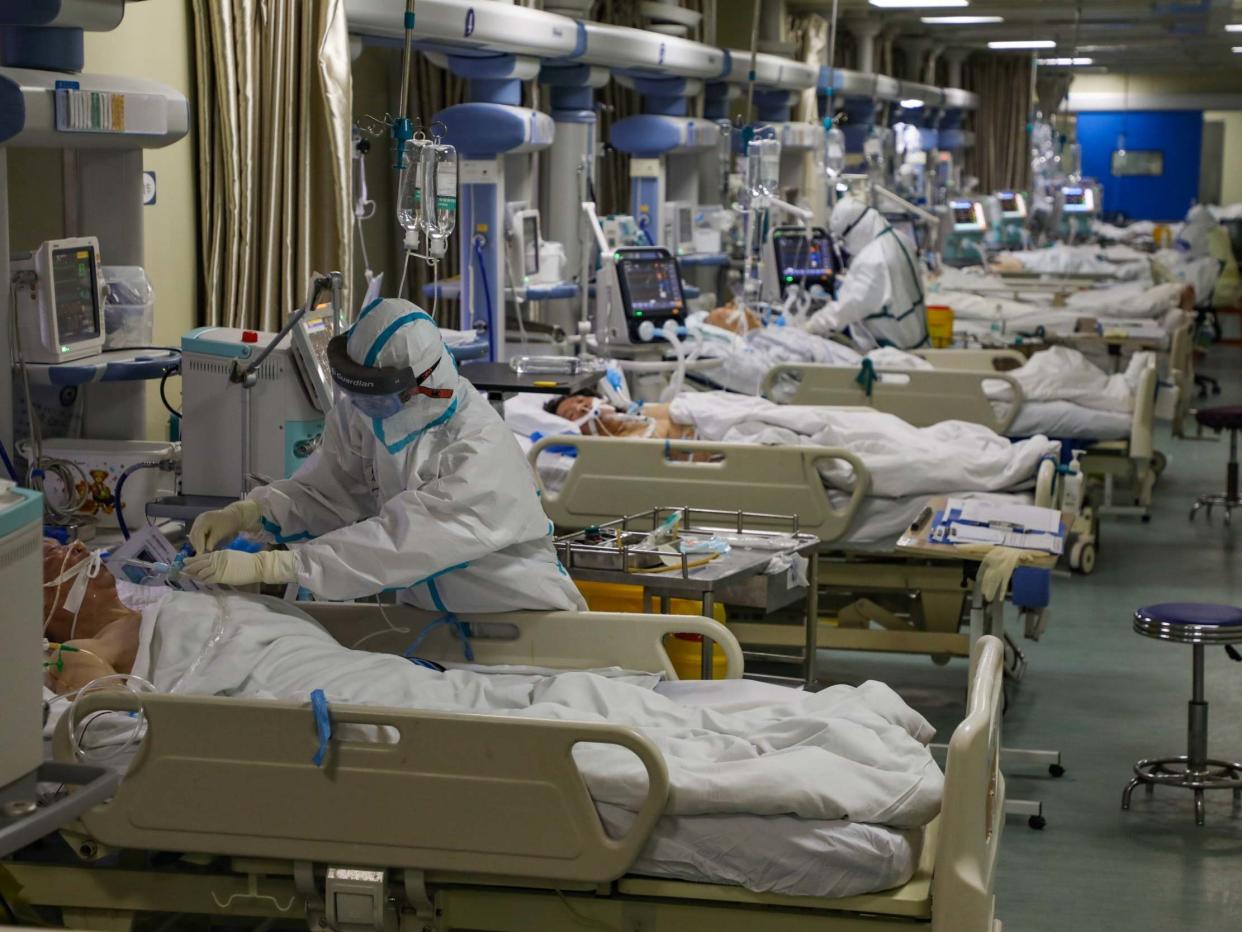Coronavirus: NHS doctors to be given guidelines to decide which victims go on ventilators

Overwhelmed doctors will be given new guidelines to help them make life-or-death decisions about coronavirus victims if they run out of intensive care beds or ventilators.
The criteria – expected to be issued on Saturday – are a recognition that hospitals are likely to be faced with terrible choices in the weeks to come and cannot be expected to make them alone.
They will cover patients with conditions including respiratory disease, cancer, heart disease and diabetes, although it is unclear whether they will also set an age limit above which treatment could be withdrawn.
Potentially, it could also see a patient already on a ventilator removed to allow a someone with a greater chance of survival to take his or her place.
“We have never been in a situation like this before,” a source told The Independent, “there is going to be huge pressure on beds and critical care, so we are addressing that issue.”
It is understood the guidelines have been put together in little more than a week.
“We have had to move very quickly,” the source added.
The move follows terrible scenes in the worst-hit parts of Italy, branded “an apocalypse” as older and sicker patients are rejected for treatment in favour of the younger and fitter – with a warning to the UK to “get ready”.
A Sky News report revealed wards rammed with people in terrible distress – gasping for air and clutching at their chests, as tubes pumped oxygen into their lungs.
Filmed in Bergamo, in Lombardy, it actually featured an emergency arrivals ward – because the intensive care unit was full.
With doctors lacking machines to ventilate all those gasping for air, the Italian College of Anesthesia, Analgesia, Resuscitation and Intensive Care has drawn up guidelines for who receives treatment.
Maintaining the criterion of “first come, first served” would “amount to a decision to exclude late-arriving patients from access to intensive care”, it warned.
In the UK, the low number of ventilators is already a huge controversy. The NHS has just 4,000 – forcing the government to put out a desperate appeal for manufacturers to urgently build more.
Furthermore, the UK has just 6.6 intensive care beds per 100,000 people – half the number in Italy and about a fifth of the total in Germany.
The Intensive Care Society had pushed for national protocols to be drawn up and the Royal College of Anaesthetists shared the concern that the issue was being ducked.
The National Institute for Health and Care Excellence (NICE) announced on Friday that it would release guidelines to cover “the management of patients in critical care”, plus those undergoing kidney dialysis and cancer treatment.
More will follow that are likely to include patients receiving radiotherapy and those with rheumatoid arthritis.
However, The Independent understands NICE will go further by explicitly setting out the “comorbidity” – the level of sickness – criteria that will decide access to intensive care and ventilators, and potentially age.
Underlining the speed of the move, it comes only a few days after Boris Johnson suggested such fateful choices would be left to local hospitals.
The prime minister told the Commons the issue was “one that is not unknown to the medical profession, and we will be relying on the clinical decisions of those medical professionals”.
Afterwards, Dr Andrew Murrison, a consultant and a Conservative MP, who had asked Mr Johnson the question, urged him to be “open, honest and candid with public as we advance through this crisis”.
“The best way for the government to take the public with it is to explain any actions it may need to take in order to get the public’s consent and compliance,” he told The Independent.
In Italy, Antonio Pesenti, coordinator of Lombardy's intensive care crisis unit, urged the UK not make the mistake of being “unprepared for such a speed and such a huge number of patients”.
The professor revealed the region’s intensive care patients had “skyrocketed” from just one on 22 February to 1,800 now.
Setting out Britain’s grim future if “social distancing” measures fail, he said: “Any health system will be overwhelmed by the mass of sick people in one or two days.”
Read more
Will the new Covid-19 job support package be enough?
Trump to close US-Mexico border to all but cargo and essential travel
Government to pay 80% of people's wages during coronavirus crisis
Italy coronavirus deaths surge by 627 in biggest single-day rise
How to keep children healthy, happy and learning during school closure

 Yahoo News
Yahoo News 
